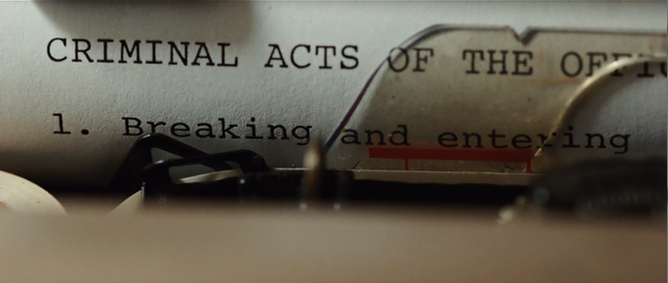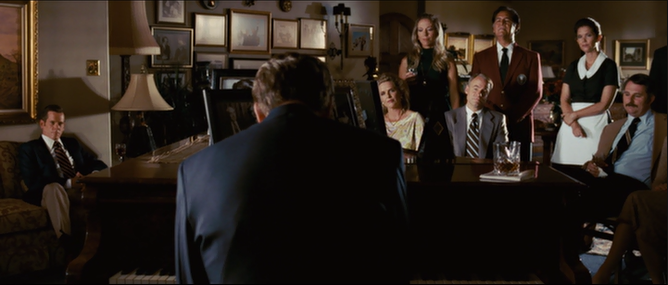When the President Does It: Ron Howard's Frost/Nixon (2008)
I wrote about Ron Howard’s Frost/Nixon in length on my blog a few years ago and I don’t mind writing about it further. With its ten-year anniversary later this year (and the current status of U.S. politics), this just seemed even more timely to re-visit it once again.
Adapted by Peter Morgan from his play of the same name, the film focuses on the series of interviews conducted between British media personality David Frost (Michael Sheen) and disgraced former U.S. President Richard Nixon (Frank Langella). During these interviews, Frost and his team tried their damnedest to elicit the confession the American people deserved from Nixon, specifically that he knew damn well about the break-in at the Watergate Hotel. But would they succeed in their task?
With both actors reprising the roles they had originated on stage, Langella and Sheen seemed ideal for Howard’s interpretation of Morgan’s play. They had played these parts many times within the span of two years on both the West End and Broadway. It’s because of their shared experience in the roles that they capture more of the real-life men. Frost and Nixon were more than the personas the average citizen saw on their television screens; they were human beings just like you and I.
Earning his first (and to date only) Academy Award nomination after decades in Hollywood, Langella gets his moment in the spotlight as Nixon. He plays the politician as someone who is fully aware that he has many enemies but certainly does not let it bother him, at least publicly. He puts on the doddering old man shtick early on in the interviews. He knows he needs to be careful about what he says, especially when millions of people are watching.
Surprisingly devoid of the same acclaim as his co-star, Sheen is equally excellent as Frost. The talk show host is described by producer Bob Zelnick (Oliver Platt) early in the film as “the most unlikely of white knights. A man with no political convictions whatsoever, a man who as far as I know had never even voted once in his life. But he was a man who had one big advantage over the rest of us: he understood television.” And, boy, does he ever. While he’s initially perceived as a playboy television presenter who’s much more interested in ratings over content, he can and will get to work when the going gets rough.
But Frost/Nixon is more than just the interviews. It also focuses on the private lives of the titular men. Nixon tries vainly to recover what’s left of his damaged reputation (he’s working on his memoirs before the interviews get underway) while Frost keeps his anxieties over funding and the possibility of the interviews never seeing the light of day hidden because – in the words of his lover Caroline Cushing (Rebecca Hall) – “that would’ve meant admitting failure, and David doesn’t do failure.” (She also observes that he has “very sad eyes” and asks him if he’s “a sad person”, to which he quickly changes the subject.)
From my standpoint, Howard is at his best when he’s tackling stories that are based on real events (Apollo 13, Rush). Yes, they’re prone to have their flaws (what movie doesn’t?) but with the various titles that fall under the category, Howard adds a certain charm to them even if it does sometimes deviate from the actual truth. Still, not many directors can take dramatized accounts of real life and add a particular flourish to the oft-done genre.
In the years since those interviews were broadcast, many of us know what became of the two men. Nixon further retreated into political exile until his death in 1994 whereas Frost’s status skyrocketed (he died in 2013). But to best sum up the aftermath, allow me to use the film’s closing lines from researcher Jim Reston (Sam Rockwell) to best capture it: “Well, New York, London and Sydney welcomed David back with open arms as did his friends and investors who made a fortune from these interviews. He got back all of his shows, he even got back his table at Sardi’s. As for Richard Nixon, well, he certainly never achieved the rehabilitation he so desperately craved. His most lasting legacy is that today, any political wrongdoing is immediately given the suffix ‘-gate’.”












